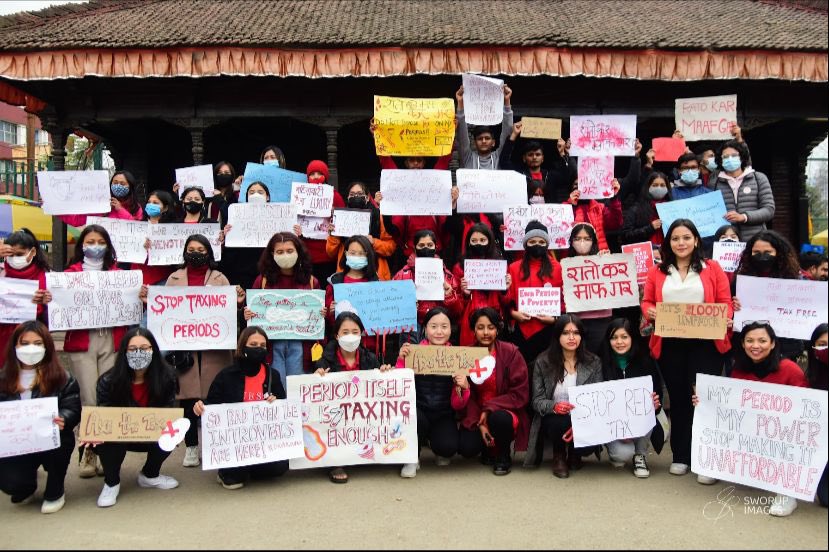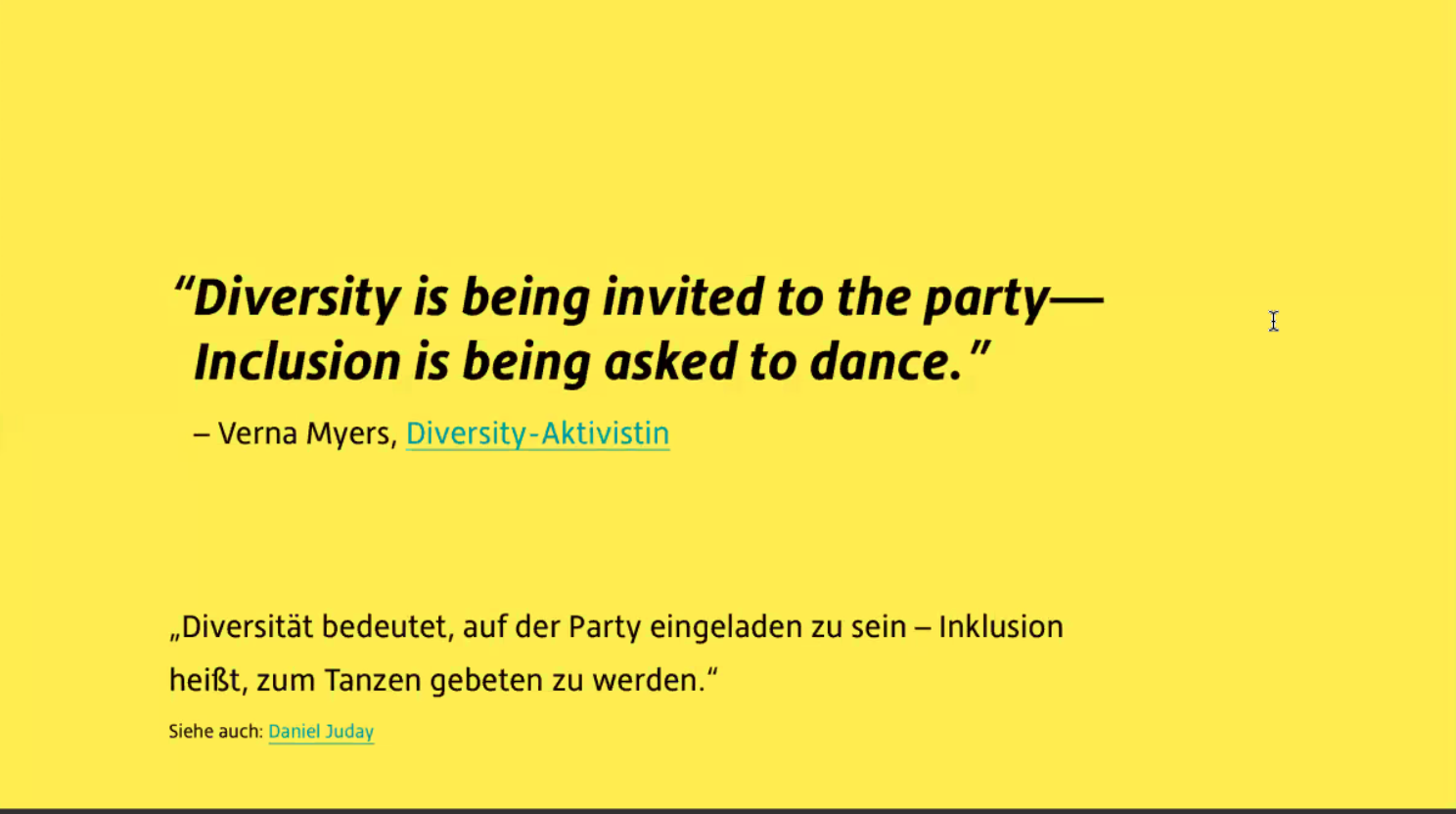We spoke with Jesselina Rana, co-founder of Pad2Go Nepal, and initiator of #RaatoKarMaafGar campaign.

In September 2020, Pad2Go started the the #RaatoKarMaafGar ("Forgive the Red Tax") campaign. Some actions took on the street, such as here in Lalitpur. They also launched a public petition.
In 2019, period brand einhorn and the magazine NEON launched an additional petition to the Petitions Committee of the German parliament. This petition reached the necessary 50,000 signatures, so the Petitions Committee invited einhorn and NEON to discuss the issue of reducing VAT on period products to 7%.
Pad2 Go as a social enterprise started in 2018, it started by introducing Nepal’s first vending machines for menstrual pads. In May 2020, we wanted to hold an international menstrual health conference with speakers and activists representing each country of South Asia. One thing that really stuck from the conversation was that India had recently removed the GST on pads, Maldives headed towards that direction and a participant from Bhutan was positive that there was conversation in their parliament, too. One key take-away for us was: why isn't a conversation around taxes happening in Nepal?
Then we started with some legal research, and we got in touch with tax auditors. We realised that the legislation on VAT has a provision to remove VAT from certain products (such as art, condoms and contraceptives) but for some reason, menstrual products were not included. So, we started conceptualising our advocacy, our fellowship program and collaboration with other organisations
We started with the acknowledgement that we are small and do not have the strength to do all the campaigning. We didn't want to be the face of the campaign - people are!
We were able to help from behind the scenes, by supporting campaigners needs. First of all, we provided some funding, such as stationary for posters. Secondly, we were able to share guidelines, such as using gender neutral pronouns to make everyone feel included, no derogatory language, and to try to create materials in as many languages of Nepal as possible.
For the collaboration we focused on youth-led organisations. Previously, I was working with Amnesty International prior. One of their strengths is a network of young activists across Nepal and I was able to get in touch with them. We created a loose network and we had quick consultations with them on how to take this forward. Then it started picking up and then there was street demonstrations across the country. They provided so much support because this is an issue that affects all of us!
I do see a difference. For our national consultations, we did one with civil society organisations and one with businesses to gather information and understand if there’s room for Pad2Go to balance out concerns and needs of both sides. We wanted to keep the consultations open and accessible to everyone and create accountability and transparency. Therefore, we did some live consultations for everyone to watch on our Instagram page. For the provision of the vending machine, we have sustained collaborations with pad companies (importers, domestic manufacturers) who provide the pads at a discounted rate and enable choice for the consumer. It was important for us to ensure that Pad2Go is a non-partisan company.
During our research we came across information that domestic manufacturers in India and Zimbabwe had felt a negative impact. In the consultancy with the NGOs, it wasn’t a concern that was raised. However, we shared the business perspective with them, they did realise that this was an issue. So, the concerns of domestic and importers should be kept in mind. And Pad2Go as a business in itself understands the importance of protecting domestic players. All in all, we' re very clear that at the end of the day the consumers need to benefit.
The government changed in 2021 and all the connections and lobbying now had to start from scratch. The Ministry of Women invited us to a meeting right after we staged the protest in Kathmandu and protests all over the country started erupting. We explained our strategy to them but by the time it reached the top there were other interests at play. But we needed to read the entire budget first in detail and came to the conclusion that it was not exactly what we asked for.

Nepal's taxes :
VAT stands at 13%. In May 2022, Nepal’s government announced a removal of the import tax on sanitary pads for the budget 2022/23 which was 15% prior. And in September 2022, the Government of Nepal removed the excise duty completely on imported perforated polyethylen, the raw material used to manufacture sanitary pads.
More info
People say: “Your flagship campaign is done” – but is not done!
It’s about making sure, for one, people are aware that the national budget has looked into certain aspects of the tax. And in case the cost of menstrual products are not decreased, people can once again take to the streets for their voices to be heard. Secondly, retailers need to be held accountable.
Even if we can act as watchdog, who is to say what happens in areas with less monitoring from state officials. Therefore it is important to sensitise local government, consumers, retailers and that’s an ongoing process.
Even in an ideal world – when taxes are removed - our work will not be done!
Nepal has many larger organizations with greater capacity, resources and strength to mobilize their campaigns. Although these factors can disadvantage smaller organizations- collaboration is key!
More info
Learn more about the pad2go campaign
Sign the petition